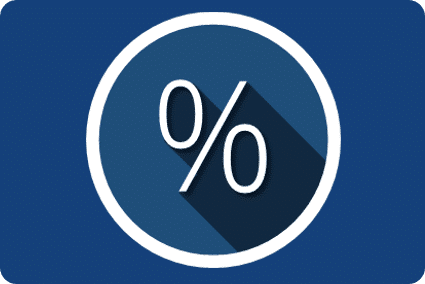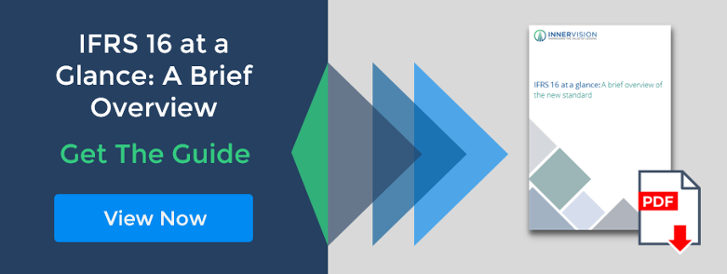Under 10% of Companies Prepared for New Lease Accounting Standards
Updated 12th May 2021 | 5 min read Published 9th June 2016

Just 9.8% of thousands of financial and accounting professionals, recently polled by Deloitte, say their companies are prepared to comply with the new lease accounting standards, IFRS 16 and FASB ASU 842.
During a recent webinar, hosted by leading auditors, Deloitte, over 5,400 accounting and financial professionals were polled on their preparation plans for compliance to the new lease accounting standards. The results highlight a clear lack of preparation amongst the vast majority of companies from various industries.
"Following the release of both new lease accounting standards, it’s clear that creating a centralized, electronic repository of all equipment and real estate leases held should be a priority for companies with leased assets."
Sean Torr, Advisory Managing Director and Lease Accounting Services Leader at Deloitte & Touche LLP
Only 15% believed that the transition to the new lease accounting standards would be easy to implement. This is likely due to the imposing tasks of completing an active lease audit, ensuring all gaps in data are filled and developing the necessary reports needed for compliance.
The new software requirement was highlighted as one of the most pressing concerns for many of the businesses. In order to achieve a successful transition to the new standards, businesses will need to centralise and organise their leases onto an electronic portfolio system; with lease accounting remaining unchanged for the last 30 years, this is something many companies are severely lacking.
The Deloitte survey revealed that only 31.3% believed their current software systems should be adequate to deal with the transition requirements, but with many unclear on their preparation plans and a worrying number still heavily reliant on spreadsheet accounting, it is unclear how many of these businesses truly differ from those who have highlighted a need for a software update.
As well as the need for an electronic form of lease portfolio management, other stand out concerns included the requirement for reporting processes that would evaluate quarterly adjustments for the balance sheet, along with profit and loss statements, the data gathering process and educating colleagues, investors, advisors and stakeholders about the changes and the impact of IFRS 16 and ASU 842 on financial statements.
Deloitte’s research indicates a concerning lack of knowledge and preparation regarding new lease accounting standards across businesses. Whilst there is still adequate time to implement the required changes and achieve full compliance, companies should have by now at least begun the initial planning and understanding stages of implementation.
"While the new lease accounting standards may seem a niche accounting or finance concern, they are not."
Deloitte
The timescale required to collect the necessary information on every single active lease, across an organisation, as well as review and report accurately on the impact under the new lease accounting standard, is fast approaching and rather pressed. It does not leave much time for companies to educate their teams, negotiate internal budgets, develop a systematic process for data collection and integrate a new software, all aspects that will delay compliance.
Time is still on our side in terms of compliance deadlines. Although the Deloitte research represents a concern that a vast majority of companies seem underprepared and lack adequate resources, it also serves as a reminder that companies are beginning to look at the current leases and begin the planning stages of organising their response to the new lease accounting standards and achieving full, cost-effective compliance.
"I’d encourage any leader of an organization with real estate or equipment leases to take the time now to learn about the potentially broad-reaching impacts of these new accounting requirements."
Deloitte
Now is the time to take some of the initial steps to preparing for the transition. There are a number of small steps that can be taken in these early stages that will ensure a successful and hassle free transition in the long term:
-
Research –
Gather as much information as you can about the transition and store several resources for yourself and share with your colleagues so you can keep up to date with later announcements without needing to go back and forth between taking proactive steps and re-educating the team.
-
Assign a Team –
Alert the departments that are going to be affected by the transition (procurement, finance, IT etc.) and start a planning committee to ensure all bases are covered and communication channels are open.
-
Data Audit –
Many companies have begun the process of collating all of their leases and filling in the gaps of missing data. This is probably the longest and most arduous task of the transition, so getting a head start is advised, particularly as the final reports may require retrospective reports of 2017 and 2018.
-
Lease Accounting Software –
As the Deloitte poll revealed, many companies do not have suitable software to electronically store and centralise their leases. Now is the time to research lease accounting software and implement one that allows you to complete every aspect of transition as well as secure long term cost saving benefits of leasing. Innervision’s LOIS, is a great place to start as the most cost-effective way to comply.
If you require any additional information on the new standards, you can download the below eBook – IFRS 16 at a Glance
LOIS is the powerful lease management software that enables you to organise and report on your lease portfolio more effectively. It acts as the hub of leases in your organisation, allowing you to view lease details, arrange new leases and analyse your lease commitments. With full reporting capabilities, you always have complete visibility of your lease portfolio.
The software also incorporates an integrated IFRS 16 and FASB (Topic 842) reporting functionality that helps generate the required retrospective comparative reports obligatory for compliance and helps simplify the entire transition process.







